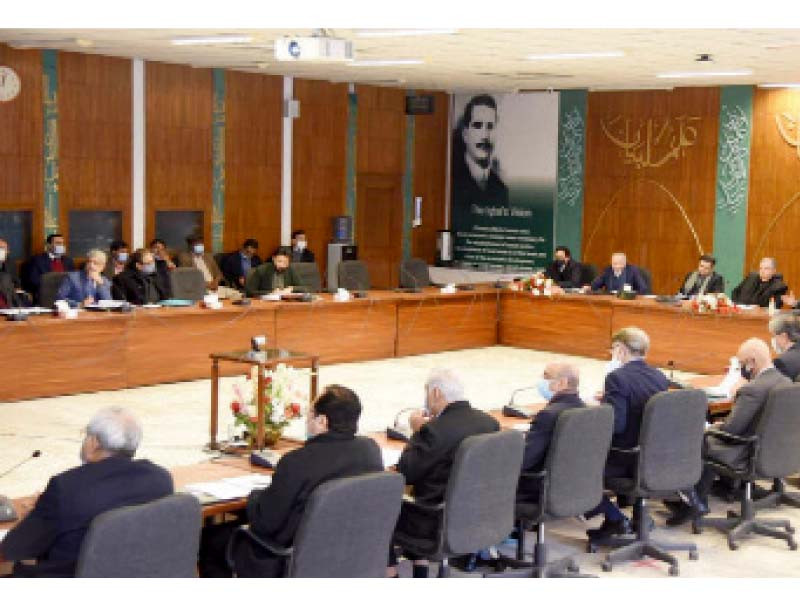
The government on Monday approved a price of Rs240 per kg for tobacco being used in cigarettes - nearly 8% less than the recommendation - due to pressure exerted by two multinational companies.
A special meeting of the Economic Coordination Committee (ECC) of the cabinet approved the minimum indicative prices of various grades of tobacco.
The meeting had been convened after Commerce Adviser Abdul Razak Dawood last Friday (January 21) requested to postpone decision on the tobacco pricing summary, which was on the regular ECC meeting agenda. Finance Minister Shaukat Tarin virtually presided over the meeting.
The Ministry of National Food Security and Research had submitted proposals for minimum indicative prices of tobacco. The ministry recommended a price of Rs260 per kg for Flue-Cured Virginia (FCV) - a tobacco grade used for the manufacturing of cigarettes.
The ECC approved Rs240 per kg for FCV from the plain area, according to a Ministry of Finance statement. It also approved Rs281.1 per kg for the sub-mountainous area.
The price is 11.6% higher than the prevailing rates but 7.7% less than what had been recommended by the Ministry of National Food Security.
About three-fourths of FCV is being purchased by two multinational companies and they have a significant say in the determination of their input cost.
Sources said that after coming to know about the price of Rs260 per kg for FCV, representatives of the two cigarette manufacturers met Dawood, requesting him to play his role in pushing the price down.
The minimum indicative price of tobacco is recommended by the Prices and Grade Revision Committee of the Pakistan Tobacco Board (PTB) on the basis of cost of production determined by the relevant committees.
A survey for the determination of cost of production was undertaken in pursuance of the PTB by-law, according to the summary.
However, growers protested against the results of the survey, saying that the committees exaggerated the average yield of FCV tobacco while the actual per-hectare yield was lower than the claimed one.
This unrealistic figure resulted in a lower cost of production compared to the actual cost borne by tobacco growers, according to the food security ministry.
The Ministry of National Food Security also disagreed with the survey findings and with price recommendation of Rs215 per kg, and gave directives to revise the price due to a substantial increase in cost over the past few months.
The inflation rate in Pakistan is in double digits at 12.3%, which according to The Economist magazine is the third highest in the world.
To reach consensus on the average yield per hectare, the average yield, as recorded for the last 10 years through the surveys, was taken into consideration and a price of Rs260 per kg was recommended for the approval of ECC.
However, the commerce adviser disagreed with the price and proposed Rs225 per kg during a meeting held a few months ago.
Dawood on Monday did not attend the ECC meeting. But the commerce ministry representative argued that the mechanism to determine the minimum price was flawed, therefore, the ECC should consider the price only on the basis of input cost while keeping the proposed per-hectare yield calculations unchanged.
The ECC accepted the commerce ministry’s view and fixed the price at Rs240 per kg. The matter will now go to the federal cabinet for final endorsement.
The cost of cigarettes is considerably low in Pakistan compared with the international standards, as smoking is being discouraged across the world due its harmful effects.
The ECC approved a price of Rs149 per kg for Dark Air-Cured (DAC) tobacco, Rs123 per kg for White Patta grade and Rs187.5 per kg for Burley grade.
The price for tobacco used in Naswar snuff, hookah and other rustica tobacco was also approved at Rs123 per kg by the ECC, according to the finance ministry.
Published in The Express Tribune, January 25th, 2022.
Like Business on Facebook, follow @TribuneBiz on Twitter to stay informed and join in the conversation.


















COMMENTS
Comments are moderated and generally will be posted if they are on-topic and not abusive.
For more information, please see our Comments FAQ